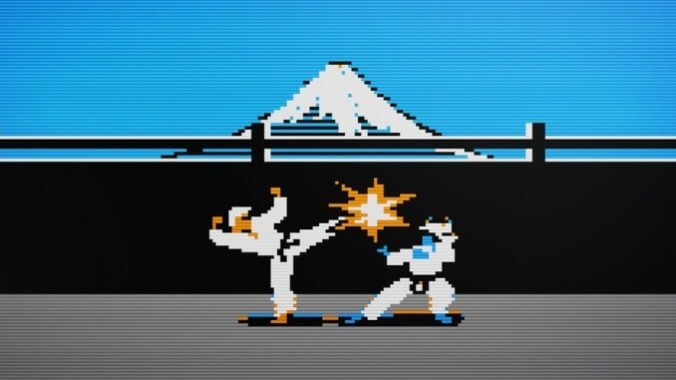The Making of Karateka Sets a New Standard for Game Preservation

Game design is a mystery to most people who’ve never made a game. Hell, it still is for a lot of people who have made games, too. Even the most obsessive videogame fanatics have incorrect beliefs and distorted assumptions about how games are made; just check social media or online gaming forums for proof. That’s one reason something like The Making of Karateka—an interactive documentary that painstakingly tracks the design of the classic 1984 computer game Karateka—is so important. It shows, in exacting detail, how Jordan Mechner created the kung fu fighter, exploring Mechner’s work on both Karateka and his unpublished earlier games through contemporary video interviews, original design notes, correspondence, and multiple iterative prototypes. It reveals the give-and-take between Mechner and his publisher while showing how the then-college aged Mechner’s vision and mindset changed throughout development. It’s a brilliant piece of work, and a must-play for Karateka fans and anybody interested in game design. It’s also a format that should become standard across the industry.
Like last year’s Atari 50, The Making of Karateka was created by Digital Eclipse, a studio that has focused on preserving classic games for most of its history. After a run of excellent bundles republishing Mega Man, Street Fighter, and Disney games (among others), Digital Eclipse introduced its interactive documentary format with Atari 50; on the back of that title’s acclaim, it subsequently announced the Gold Master Series, a series of documentaries that debuted in August with The Making of Karateka. They’re shining a light on games that otherwise might be overlooked today, making them accessible for longtime fans who want to revisit them while also introducing them to new audiences who may not have been alive when these games originally came out. Additional games haven’t been announced yet, but according to an Xbox Wire post by Digital Eclipse’s editorial director Chris Kohler, the studio’s goal is to focus on “games that changed the world.”
There are many games that are historically important, especially in the early days of the medium, that aren’t owned by one of today’s major gaming companies. Karateka is an example; originally released for the Apple II in 1984, Mechner’s game was a bestseller that broke ground for cinematic technique in games, with a clear storyline, cut-scenes, an original score (written by Mechner’s father, Francis Mechner), and editing and cinematography inspired by films. It’s also an early influence on the fighting game; it consists of a series of one-on-one karate fights, similar to Karate Fight and Yie Ar Kung-Fu, which were also both released in 1984. Karateka is like a playable ‘70s kung fu flick, complete with a shocking twist ending if the player isn’t careful.